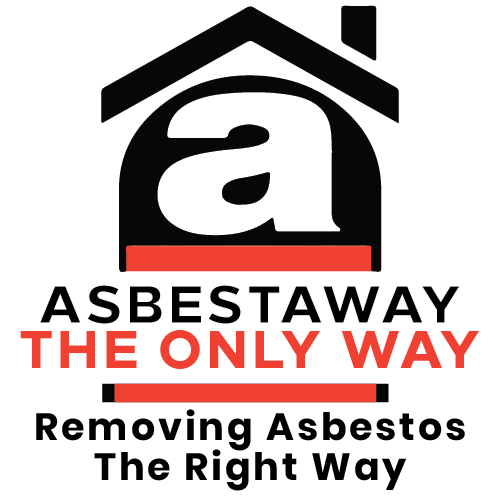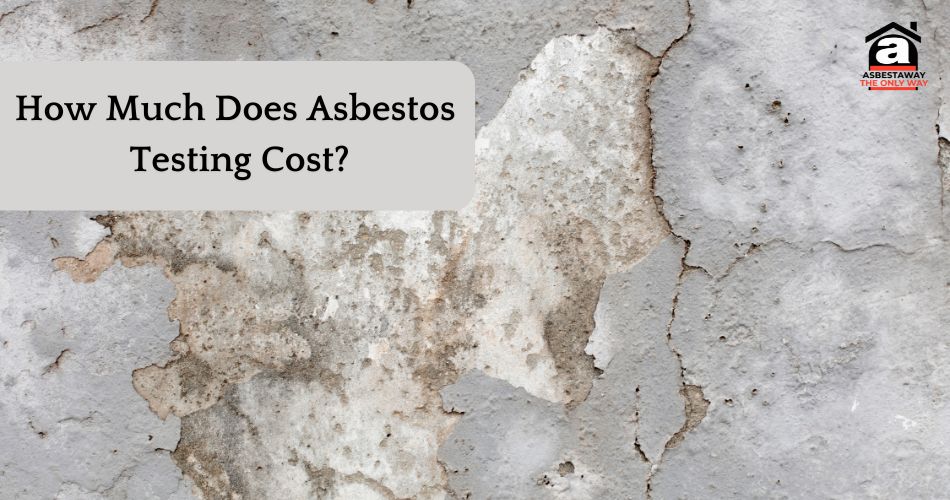Have you thought about why asbestos testing is so important? How can you determine if your property needs asbestos testing? Asbestos testing is essential for assuring safety and health in areas containing asbestos. Asbestos offers no threat if kept undisturbed and properly maintained. However, disturbing asbestos can release harmful fibers that cause serious diseases such as mesothelioma and asbestosis. According to Workplace Health and Safety, one in every three Australian homes built before 1990 may contain asbestos, making testing even more vital. Pre-purchase asbestos testing can help you avoid purchasing a house that could become an asbestos money hole.
Professional asbestos testing costs $200 to $800 each sample, but DIY kits cost between $30 and $60. Although DIY kits are less expensive, have you considered the potential trade-offs in accuracy? Professional testing, particularly at a NATA-accredited laboratory, ensures that results are credible and adhere to global best practices.
Asbestos was employed in over 3,000 goods because of its toughness and resistance to heat and chemicals. However, when asbestos sheeting is disturbed, fibers are released that can lodge in the lungs and cause fatal diseases. Therefore, have you considered the need of proving the existence of asbestos through professional testing? It is critical to protect your health and investment.
What is Asbestos and Why is Testing Important?
Asbestos is a naturally occurring mineral fiber that was previously widely employed in construction materials due to its fire-resistant and insulating qualities. However, it is now recognized as a toxic material that, when inhaled, can result in major health problems such as lung cancer, mesothelioma, and asbestosis. Asbestos testing is crucial because it detects the presence and concentration of asbestos fibers in various materials, air, and soil, allowing necessary actions to be taken to manage and minimize exposure. Early detection through testing aids in the prevention of health hazards, the creation of better living and working environments, and the adherence to safety laws.
Types of Asbestos Testing
1) Air Testing
Air testing determines the concentration of asbestos fibers in the air. It is critical in situations where asbestos-containing materials have been disturbed, potentially releasing fibers into the atmosphere. This form of testing frequently entails employing air sampling pumps to collect air samples over a set time period, which are then examined in a laboratory. Air testing is critical for ensuring that the inside air quality stays safe, especially following asbestos removal or disturbance. Professional air testing normally costs between $200 and $400 per sample, depending on the complexity of the analysis.
2) Bulk Material Testing
Bulk material testing involves gathering and evaluating samples of materials suspected of containing asbestos, such as insulation, tiles, or drywall. This testing is essential for detecting asbestos in building materials prior to refurbishment or demolition activities. The procedure typically entails sampling the material, followed by laboratory investigation using techniques such as polarized light microscopy (PLM) or transmission electron microscopy. The cost of bulk material testing ranges from $20 to $100 per sample, depending on the type and quantity of samples examined.
3) Soil Testing
Soil testing for asbestos is required in places where asbestos-containing materials may have been buried or improperly disposed of. This sort of testing entails collecting soil samples and examining them for asbestos content, usually with PLM or TEM procedures. Soil testing aids in determining contamination levels and guiding cleanup activities to prevent asbestos exposure from soil disturbances. Soil testing costs per sample varies and is calculated, depending on the depth and complexity of the sampling necessary. This testing is critical to assuring the safety of building sites and nearby areas.
Factors Influencing Asbestos Testing Costs
1) Location
The cost of asbestos testing might vary significantly depending on your area. Areas with a high cost of living or strict environmental restrictions have greater testing expenses. Urban areas may also see higher charges due to increasing demand for testing services and operational expenditures for asbestos testing organizations. In contrast, rural locations may see cheaper costs but restricted access to certified testing providers, affecting overall pricing and availability.
2) Size of the Area
The cost of asbestos testing is directly related to the size of the area being examined. Larger regions necessitate more thorough sampling and longer inspection times, resulting in higher overall expenditures. evaluating a single room, for example, is significantly less expensive than evaluating an entire building or industrial complex. Costs rise as the project’s size increases because more resources, such as time and personnel, are required to complete a thorough review.
3) Number of Samples
The quantity of samples collected for examination is another important factor in determining the cost of asbestos testing. More samples imply greater laboratory expenses and more time for collection and processing. examination of a few samples may be reasonably inexpensive, but complete examination of dozens of samples will greatly increase the final cost. Each sample often incurs a separate analysis fee, which adds to the overall cost.
4) Testing Method
Different testing methods come with varying costs. Air testing, bulk material testing, and soil testing all have distinct methodologies and cost ranges. Bulk material testing, for example, is less expensive than air testing since the collection and analysis processes are simpler. Advanced approaches, such as transmission electron microscopy (TEM), are more expensive due to their accuracy and complexity. The approach used is determined by the project’s specific requirements and the level of precision required.
5) Laboratory Fees
Laboratory fees are a significant portion of asbestos testing costs. These costs cover the cost of analyzing samples with specialized equipment and skilled workers. High-quality, accredited laboratories may price more, but they provide more accurate and thorough results. Some labs offer bulk testing discounts, while others might charge per sample. The complexity of the analysis, turnaround time, and certification of the laboratory can all influence the final cost.
Average Costs for Asbestos Testing
1) Residential Testing Costs
Residential asbestos testing involves examining homes for asbestos-containing materials such as insulation, tiles, and drywall. Costs vary based on the number of samples and the complexity of the testing required. Typically, a comprehensive inspection includes collecting multiple samples and conducting thorough analysis, with pricing influenced by the size of the home and the specific testing methods used.
2) Commercial Testing Costs
Commercial asbestos testing tends to be more expensive due to the larger areas and complexity of commercial properties. The overall cost reflects the increased number of samples needed, more extensive testing procedures, and stricter regulatory compliance requirements. Large buildings or industrial sites often require a full-scale survey, which significantly impacts the total expense.
3) DIY Testing Kits
DIY asbestos testing kits offer a more affordable alternative for small-scale testing or specific materials. These kits include sampling materials and instructions for collecting samples, which are then sent to a laboratory for analysis. While cheaper, DIY kits may lack the reliability and accuracy of professional testing due to potential sampling errors by untrained individuals and limited support.
Additional Costs to Consider For Asbestos Testing
1) Inspection Fees
Prior to testing for asbestos, a basic inspection may be necessary to identify potential areas of concern. These inspections are carried out by certified professionals who visually analyze the property and gather basic information. The cost of inspection fees varies greatly depending on the property’s size, location, and the complexity of the inspection. This first phase is critical because it helps identify the breadth of testing required and identifies potential hazards. A thorough inspection ensures that all areas of risk are correctly identified, which helps to guide the subsequent testing process more effectively and precisely.
2) Post-Testing Services
After asbestos testing, extra post-testing services may be required to completely understand and manage the problem. These services may include extensive analysis reports that contain in-depth information on the types and concentrations of asbestos discovered. Risk assessments are frequently used to evaluate potential health concerns based on test results. Follow-up inspections may be required to ensure that asbestos levels remain below acceptable limits following remediation activities. These post-testing services are crucial for building a complete asbestos management plan and guaranteeing long-term safety, increasing the overall cost of asbestos testing.
3) Asbestos Abatement Costs
If asbestos is identified, it must be removed to reduce health hazards. The cost of abatement is determined by a variety of factors, including the level of contamination, the type of asbestos materials present, and the complexity of the removal method. Abatement is the safe removal and disposal of asbestos-containing materials, which typically necessitates specialized equipment and highly trained specialists to ensure compliance with health and safety laws. This process can be lengthy and labor-intensive, greatly raising the final cost. Proper abatement is critical for restoring a safe environment, so it is a worthwhile investment despite its high cost.
How to Choose a Reputable Asbestos Testing Services Company?
To choose the reputable asbestos testing services company, follow the below process.
1) Certification and Accreditation
Ensure that the asbestos testing business is certified by recognized agencies like NIOSH or the EPA. These certificates prove adherence to strict safety and quality standards, ensuring consistent outcomes. Membership in professional organizations such as the AIHA indicates a commitment to current industry practices and standards, as well as a high level of operational efficiency and regulatory compliance.
2) Reviews and Recommendation
Check reviews on the internet and get recommendations from friends, family, and industry professionals. Positive feedback from former customers demonstrates dependability and great service. Request references or case studies from the company, as well as recommendations from local health departments or building associations. A good reputation based on continuous, high-quality service is essential when selecting a reputable provider.
3) Quotes and Comparisons
Request quotations from various companies to compare prices and services. Be aware of unusually low costs, which could indicate inadequate service. Ensure that each quote contains a clear description of services and any additional expenses. Comparing service scope, turnaround times, and personnel knowledge will help you make an informed decision, ensuring that you get the best value for your money.
Why Consider Asbestaway For Asbestos Testing Services?
Asbestaway is distinctive among competitors because of its extensive certification and accreditation from top health and safety organizations such as the National Institute for Occupational Safety and Health (NIOSH) and the Environmental Protection Agency (EPA). These qualifications demonstrate their dedication to high safety and quality standards. Asbestaway is also a member of the American Industrial Hygiene Association (AIHA), demonstrating its commitment to keeping up with industry best practices. The organization has received rave reviews for its comprehensive testing procedures and professional customer service, with customers continually applauding their thoroughness, dependability, and the peace of mind they offer.
Asbestaway provides transparent and competitive pricing, ensuring you receive top-notch service without hidden fees, making budgeting straightforward and stress-free. Their skilled team uses cutting-edge equipment to ensure accurate and dependable outcomes. Advanced technology and extensive training programs prepare their staff to handle complicated testing scenarios effectively, ensuring that each test is carried out with the utmost precision and care. When you choose Asbestaway, you can be confident that you will receive a high-quality asbestos testing service that puts safety and customer happiness first. Asbestaway’s combination of knowledge, transparency, and cutting-edge technology makes it a reliable solution for both homeowners and companies, assuring a safe and compliant environment.
Conclusion
Choosing a suitable asbestos testing business is critical to assuring safety and compliance. When making your decision, consider certification and accreditation, great ratings, and competitive quotes. Asbestaway embodies these values by providing verified, well-reviewed, and economically priced services. Our commitment to excellence and client satisfaction distinguishes us as a top choice in the asbestos testing market. By emphasizing these qualities, you may locate a dependable and trustworthy business to manage your asbestos testing requirements, guaranteeing a safe and secure environment for everybody.
To learn more about Asbestaway’s services or to schedule asbestos testing, reach us via contact us page call directly to our experts 0437 089 444 . Our proficient staff is here to help you with all of your asbestos testing questions and needs.

